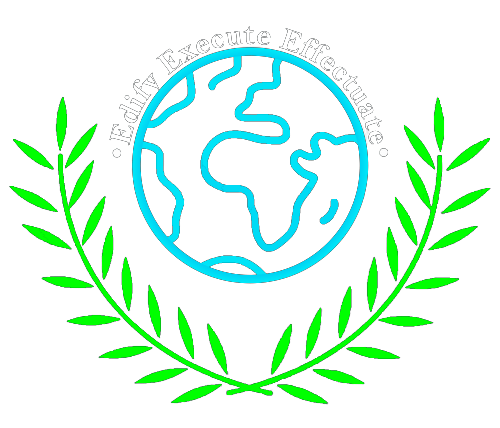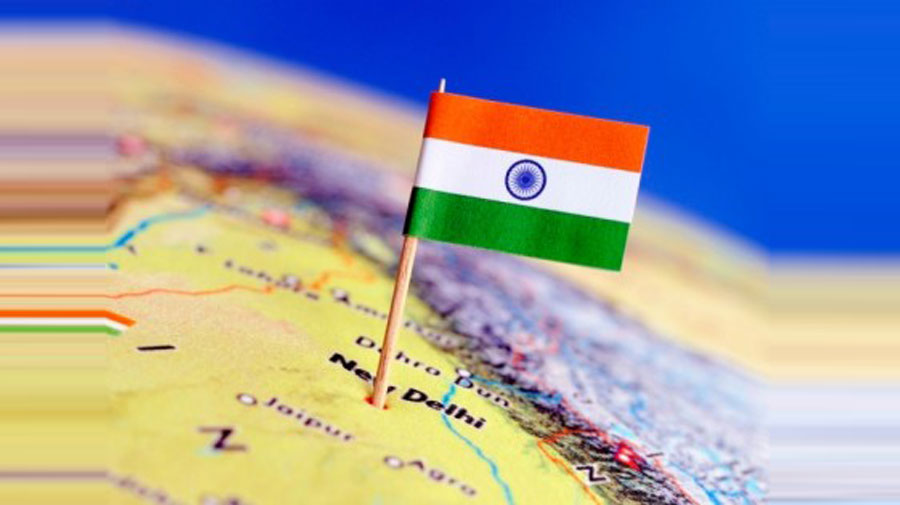Political Implications of India’s Foreign Policy Shifts
Author: Anto Mariya M M
Introduction
India and its foreign policy have been a puzzle for many, with significant shifts over the years. These shifts in India’s relations with the nations of the world have undoubtedly had an impact on its global positioning. In addition, the implications of Indian foreign policy shifts have been multifaceted. The article primarily focuses on its impact on its neighbourhood as well as domestically in terms of the role of its federal states. The growing role of paradiplomacy in international engagement by Indian states is also captured. Changes have been witnessed in its stance on nuclear policy and its eloquent role in global institutions. India was able to become a Nuclear weapons state despite international sanctions. India has become more vocal on multilateral platforms due to its evident growth in hard and soft power.
Impact on India’s Neighbourhood and Beyond
Keeping strategic autonomy as the top placeholder in Indian foreign policy, India has left NAM in the past. India was once a leader of non-aligned countries, but its present moves strive towards multi-alignment. The Modi Government’s ‘Neighbourhood First Policy’ made the immediate neighbours the main priority. However, in reaction to China’s rise in the region, India turned its diplomatic priorities to Southeast Asia by transforming its ‘Look East Policy’ to a proactive ‘Act East Policy’. It has been challenging for India to restrict Chinese influence in South Asian countries’ investments and infrastructure. Through development assistance programs and connectivity projects in Bangladesh, Sri Lanka, and Afghanistan, India has attempted to counterbalance China’s assertiveness by putting forward its own projects, such as the IMEC, in opposition to the Chinese Belt & Road Initiative. With BRI, the String of Pearls and all that, the Indian foreign policy shifts have led to an increased focus on maritime security. India uses groupings like the Quad to grow its influence in the Indo-Pacific.
Regarding the relations with Pakistan, India has taken a proactive approach, even launching surgical strikes in response to terrorist attacks like the Uri attack, stressing that cross-border terrorism is a no-go. Ignoring SAARC and moving on with BIMSTEC, an organisation excluding Pakistan for regional engagement. India’s stance on its neighbourhood has changed with shifts in its foreign policy approaches.
Effect on Indian Federalism
The shifts in Indian foreign policy have led to more vocal Indian states on the foreign policy agenda. Earlier, the subject of foreign policy was solely an issue of the central government. However, times have changed. The consequences of foreign policy decisions and actions have repercussions on the states as well. India’s stance on the fishermen’s issues and the state of relations with Sri Lanka have a direct impact on Tamil Nadu (Thakkar, 2021). The agreements and disagreements over the Teesta River water sharing affect the people of West Bengal. A large diaspora in Gulf nations is from the state of Kerala, and cordial relations with them are crucial. Kerala, thus, has an interest in ties with the Gulf nations. The Northeastern states sharing borders with sovereign states are no exception. The political developments in Myanmar, like the military coup, strain the Northeastern state of Manipur. The states in Northeast India are faced with refugee crises whenever there is political turmoil and instability in their neighbouring, bordering countries. These federal states, thus, become invested in India’s relations with those nations that share borders with them, as well as India’s response to such foreign policy issues.
Paradiplomacy refers to the international activities carried out by subnational entities which are not sovereign states. In traditional diplomacy, sovereign states engage in diplomatic relations with each other, but paradiplomacy involves subnational entities asserting themselves on the international stage (Bharat, 2023). Paradiplomacy gives states space where their local sentiments can be addressed, thus leading to decentralisation in foreign policy decisions. In the case of Gujarat, the state has been projecting itself as the ideal investment destination in India. It is undeniable that Gujarat, through its subnational engagements, has increasingly attracted not just economic investments but is also now paving the way for cooperation on sustainable development (South Asia@LSE, 2017). The growing role of para-diplomacy is evident in issues affecting the states’ economic as well as security interests. It is challenging the traditional centralisation of foreign policy decision-making. Indian federalism is changing in the sense that the states are no longer passive recipients. Thus, the shifts in Indian foreign policy are a reason for the changing dynamics of federal-state relations in India.
Indian Voice in Global Institutions
India’s more vocal participation in multilateral forums shines a light on its rise on the ladder among global powers. India is the largest democracy in the world, home to 1.4 billion people, has the fifth largest economy, and is moving forward in technological aspects. India has larger aspirations to become a dominant power, shaping the course of global politics. In line with its hard power and soft power growth, the advocacy for equitable representation and reforming the existing global governance structure resonates with them. India has traditionally supported UNSC revisions to reflect geopolitical realities (India’s Role, 2024). In addition to permanent member status for itself in the Security Council, it proposes adding African and Asian states to permanent and non-permanent membership. The United Nations, as instituted in 1945 after the Second World War, do not represent the current power dynamics, which is why nations like India are striving for a reformation in the UN. Permanent membership could give India veto power over any decisions in the forum. This eloquent stand for permanent membership shows its growth in strategic power, a consequence of its shifting foreign policy. Even in the fight against climate change, India stands with developing countries, asking the wealthier nations to finance more for the cause on global platforms like the United Nations Framework Convention on Climate Change (UNFCCC) and the International Solar Alliance. India has been encouraging South-South cooperation in climate finance as well as global governance reforms.
In addition to its voice in the United Nations, India has also been pushing for reforms in the World Trade Organisation, the International Monetary Fund, and the World Bank. Some of the reforms India demands are changes in voting rights at the IMF and World Bank, as well as a more equitable WTO framework. India also takes up an active role in the G20 organisation. The African Union was included as a member of the Group of 20 under the presidency of India. India calls for inclusive and representative global institutions. India’s increased economic and strategic capabilities are reflected in its more vocal multilateral diplomacy, where India is challenging the established power dynamics within these international institutions.
India’s Strategic Nuclear Stance
In 1998, India openly became a Nuclear weapons state. However, it strategically chose the No First Use policy, even with nuclear-armed adversaries like Pakistan and China surrounding the Indian territory. India was heavily sanctioned after the Nuclear test of 1998. Being sceptical of the Non-Proliferation Treaty, India never signed it. However, India was able to attain a responsible nuclear power status thanks to its diplomacy and renewed foreign policy. With a focus on strategic autonomy, India gained nuclear capabilities that were in line with its national interests. It was essential to avoid the nuclear threats India faced from its adversaries, as well as partners, in its engagements. Though India has developed Nuclear power capabilities, India still advocates for non-proliferation globally. India is generally perceived as a peace-loving nation with its legacy. India’s strategic nuclear stance is thus a contribution to the shifts in its foreign policy.
Conclusion
The shifts in Indian foreign policy have had various political implications in the neighbourhood as well as internally, institutionally and in the Nuclear realm. In the case of India, its foreign policy strategy has shifted under different leaderships at the centre. India led the non-aligned countries as soon as it gained independence under the Nehruvian era, while under the present Modi prime ministership, India clearly follows multi-alignment. These shifts have had implications for its federalism internally and regionally in its neighbourhood. Advocating for equitable representation in global institutions such as the United Nations, WTO, and IMF asserts India’s economic and strategic power and outspoken diplomacy. Becoming a Nuclear Weapons State and declaring a no-first-use policy are all results of India’s assertive stance in Foreign policy. The proactive approach in its neighbourhood, more involved federal states, an eloquent stance for equity in the global institutional framework, and the choice of strategic nuclear policy are all results of the shifts in foreign power.
References
Bharat, E. (2023, December 25). Explained: How Northeast is emerging as an important player in India’s paradiplomacy. ETV Bharat News. https://www.etvbharat.com/english/opinion/opinion-news/explained-how-northeast-is-emerging-as-an-important-player-in-india-paradiplomacy/na20231225194643131131150
South Asia@LSE. (2017, January 12). Paradiplomacy and India: The growing role of states in foreign policy – South Asia@LSE. South Asia@LSE –. https://blogs.lse.ac.uk/southasia/2017/01/12/paradiplomacy-and-india-the-growing-role-of-states-in-foreign-policy/
Thakkar, C. (2021, September 1). States in Action: Federalism and Foreign Policy in India.
South Asian Voices. https://southasianvoices.org/states-in-action-federalism-and-foreign-policy-in-india/
India’s Role in Global Governance Multilateral Diplomacy in the UN, WTO, and Beyond. (2024, November 28). Diplomatist. https://diplomatist.com/2024/11/28/indias-role-in-global-governance-multilateral-diplomacy-in-the-un-wto-and-beyond/


